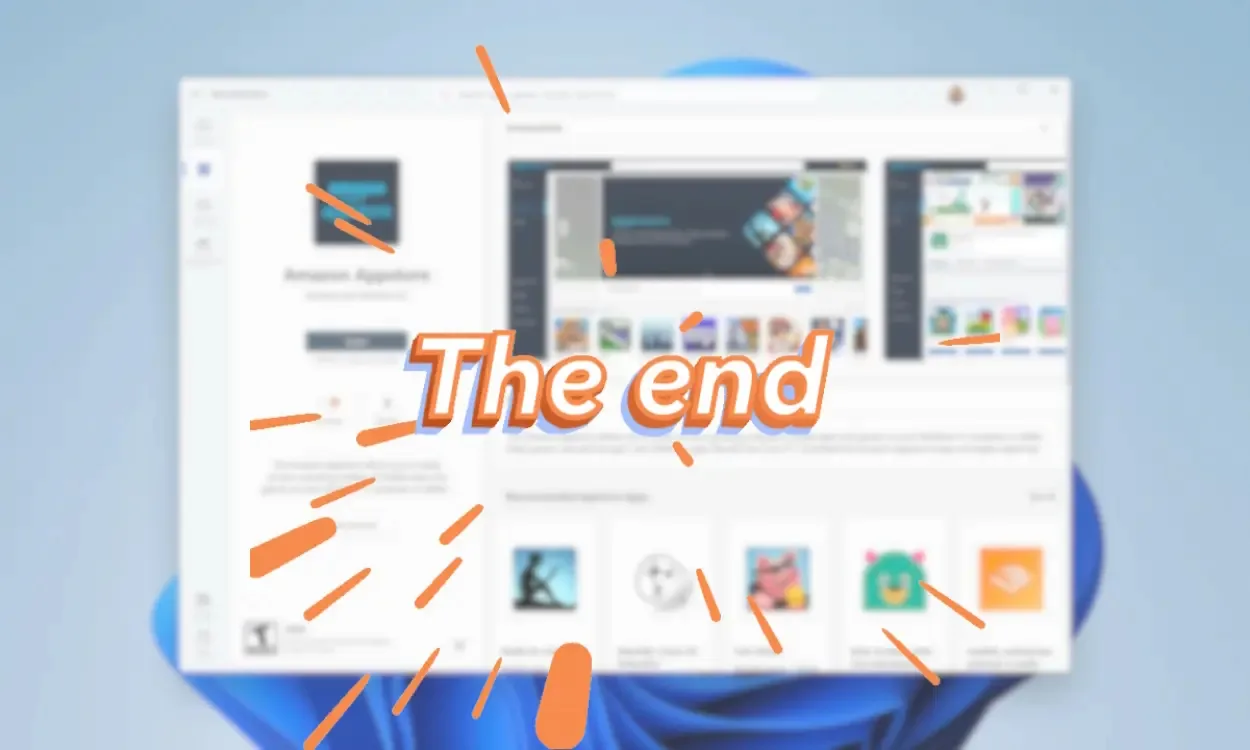
In 2021, the release of Windows 11 introduced the Subsystem for Android (WSA) as a standout feature of Microsoft’s latest operating system. This functionality allowed users to seamlessly install Android apps on Windows PCs without the need for third-party Android emulators, making the setup process straightforward. However, in an unexpected move, Microsoft has announced that it will discontinue native support for WSA on March 5, 2025. Nonetheless, there’s a caveat to this decision.
With Microsoft discontinuing support for Windows Subsystem for Android, Amazon has announced the cessation of its Appstore on Windows 11. Effective March 6, 2024, users will no longer have access to the Amazon Appstore or its applications on Windows 11. However, existing users with certain Amazon Appstore apps installed will receive continued support until the platform is fully discontinued.

Furthermore, Amazon has indicated that developers of these Android apps won’t be able to submit updates after March 5, 2024. Nonetheless, until the platform is fully discontinued, they will still have the ability to roll out updates for these apps to users who already have them installed on their Windows 11 systems. Microsoft also included,
Users who have installed the Amazon Appstore or Android apps before March 5, 2024, will retain access to these apps until the deprecation date of March 5, 2025.
Therefore, if you happen to be one of the users, perhaps even the sole one, with apps from the Amazon Appstore on your Windows 11 system, it’s time to prepare.
However, there are a couple of aspects of Microsoft’s decision that truly perplex me. Firstly, why would they opt to eliminate a feature that they’ve been actively promoting since the launch of Windows 11?
Additionally, I’m puzzled by why this feature was restricted to specific markets and limited to the Amazon Appstore, even three years after Windows 11’s release. It never saw a global rollout. In my view, it presented a solid opportunity to compete with Apple’s walled garden, fostering a robust Windows-Android ecosystem.
Ultimately, relying solely on injecting AI into every aspect of the operating system isn’t a sustainable strategy. Even my colleague Arjun agrees, as Copilot remains primarily confined to a chatbox.
Sure, AI is a significant trend, but how many users are comfortable with it being the sole selling point of an operating system? Features like the Windows Subsystem for Android made sense to me, but since many users never got to experience it, they won’t miss it. Looks like it’s back to installing resource-heavy emulators on Windows again. GG.
What are your thoughts on this matter?We welcome your thoughts and invite you to share them in the comments section below!




